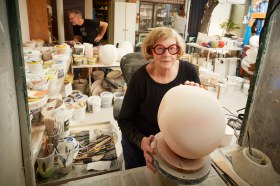In 1998 NESTA (National Endowment for Science, Technology and the Arts) was set up with an endowment of £200 million [raised in 2003 to £250 million] from the National Lottery. The income received from this is to be used to invest in ‘people who challenge received wisdom and think beyond the confines of existing disciplines’. And needless to say ‘these projects are difficult to pigeon-hole and often defy subject categorisation.’
Last Tuesday February 10th, NESTA released a telling report, New solutions to old problems: investing in the creative industries. Yet there was barely a flicker of media reaction. And while the drawback of the report is clear – it could be accused of being slow off the mark (it deals with figures spanning from 1997 to 2001 and makes no comment on the probable impact of the rise and fall of the dot.com industry) – the overall message is important. Traditional British investors have no confidence in the Creative Industries, a sector that includes computer games, design, architecture, arts, music and fashion. This lack in investment confidence translates into a serious economic hit for the UK, as innovative and exciting developments are either lost to other countries, or never fully realised through under funding.




